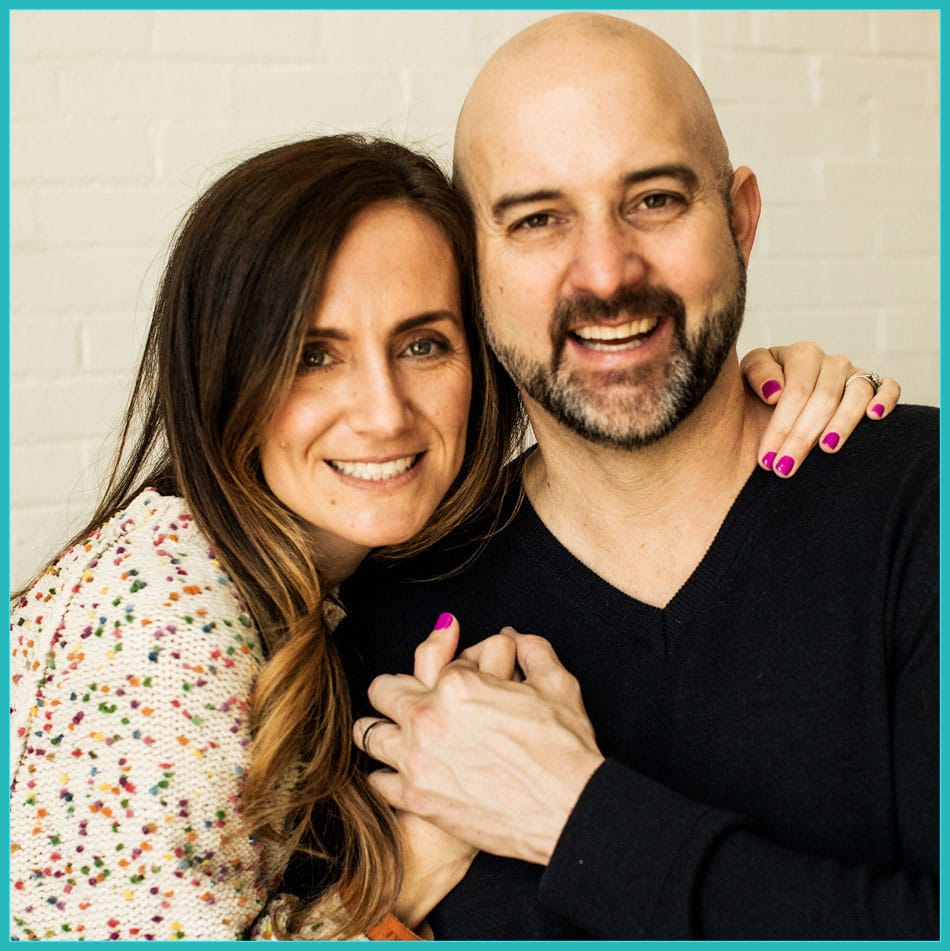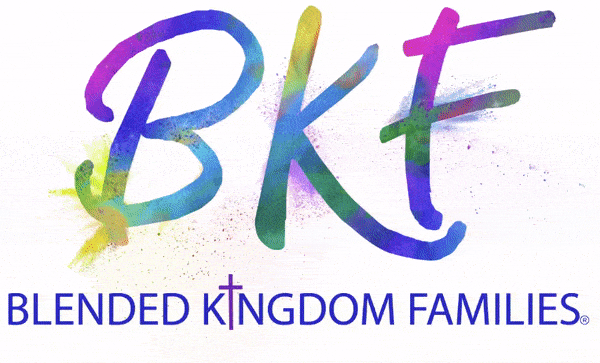How to Overcome Guilt Parenting in Blended Families

Let’s face it–there’s no handbook for raising children, and parenting can be super challenging! That’s especially true when we go through a divorce, try to co-parent, or remarry and create a blended family. Emotions can run high–especially guilt. Before we know what happened, we realize we are parenting or co-parenting from a place of guilt rather than from a place of authority. The good news is this: guilt doesn’t have to drive the car. We can throw it in the trunk, put ourselves in the passenger’s seat (because God always takes the driver’s seat!), and parent out of the authority God has given us.
What is guilt parenting?
Parenting with Guilt takes place when one or more parents or co-parents allow guilt to be the basis for how they relate to their children. Guilt parenting is not reserved for single parents or co-parents, but it does rear its ugly head often in those situations. That’s because parents genuinely feel remorse for how their divorce affected their children. They know the divorce was difficult on their kids, and they know divorce caused their children pain, so they try to make up for it by how they interact with their children.
What are some reasons parents feel guilt?
Parents can feel guilty for any number of reasons. Remember the time you accidentally pinched your baby’s skin when you were trying to trim her nails? When you accidentally slammed their finger in the door? Those are examples of healthy guilt for making a mistake. In those instances, we apologize and move on. But guilt can take on a potentially dangerous form in blended families and co-parenting. A parent may feel guilty about not seeing their children every day. Or a parent may feel guilty for turning a child’s world upside down during a divorce. Guilt can surface when a new spouse or step-sibling enters the picture. If a parent feels guilty enough, often enough, then that parent may slide into guilt parenting–sometimes without even realizing it!
What are some examples of Parenting with Guilt?
It will show up at different stages of a child’s development. For example, if a child wants something in the store and throws a fit, the parent may give the child what they want. Later, it may be buying an expensive new car when a teenager gets their license. It can be canceling plans with your new spouse because a child says they feel left out. Parenting with guilt is allowing disrespectful remarks to go unchecked and allowing the children to dictate how the house is run are both examples of guilt parenting.
Another example is the “fun” parent. Every visit to that parent’s home is filled with fun activities but no structure or discipline. A mom or dad may take their child shopping every time they pick the child up for visitation. The non-custodial parent may say they are just trying to “make up for a lost time.” Guilt parenting is not about doing what is right and best for the child–it’s about making the parent feel better.
How do I overcome guilt in parenting a Blended Family?
Unfortunately, you can’t snap your fingers to make guilt and guilt parenting go away. It will pop up at unexpected times and places. Guilt can be triggered by a memory or by seeing other parents with their children. That means you will have to face and deal with guilt parenting whenever it creeps in, as often as it creeps in. That being said, there are some things you can do to put guilt in its place.
Recognize its source. Conviction over sin comes from God, but guilt comes from the enemy. It is one of the tools he will use to derail your relationships, undermine your parenting, and create disunity and disharmony in your blended family. He has NO authority over you, so don’t give into his lies and deception!
Claim your authority. God has given you the task of training your children in the way they should go (Proverbs 22:6). He has called you to discipline them (Proverbs 29:17) while also raising them with love, patience, and understanding. You are called to teach, guide, direct, and disciple your children, so don’t give in and relinquish that authority to anyone, including your kids.
Ask for forgiveness. When appropriate and when the best opportunity presents itself, sit down with your child and talk about the divorce. Let them know that you did not intend to cause them harm. Own your mistakes and ask your child to forgive you. If this hasn’t happened yet, pray for the chance to do so. God will lead you to the right moment and prompt you to have that conversation.
Proverbs 28:13 says, “Whoever conceals his transgressions will not prosper, but he who confesses and forsakes them will obtain mercy.” By bringing everything into the light, the enemy loses power over it, and you can begin the healing process with your kids. And your children learn the power of confession and the power of forgiveness. You model healthy relationship skills by admitting fault, too.
Take back control. If your guilt parenting has led to your children ruling the house, you may need to re-establish boundaries and expectations for their behavior–and keep those boundaries when they push back (and they will). It also means you may need to become more consistent in your discipline. Don’t excuse poor behavior or lack of respect. Children actually thrive under structure and appropriate discipline, so don’t be afraid to act.
Remember, guilt doesn’t come from God. It has no place in the parenting relationship. The enemy will pound you with guilt if you allow him, but you don’t have to put up with it. Revelation 12:10-11 says, “Now the salvation and the power and the kingdom of our God and the authority of his Christ have come, for the accuser of our brothers has been thrown down, who accuses them day and night before our God. And they have conquered him by the blood of the Lamb and by the word of their testimony.” As believers, we live under the authority of Christ and we can live in freedom because of the atonement He offers. Declare your position in Christ and tell the devil to flee! When guilt is put in its proper place, you can parent out of the authority God has given you.

Scott and Vanessa Martindale
Founders of Blended Kingdom Families









